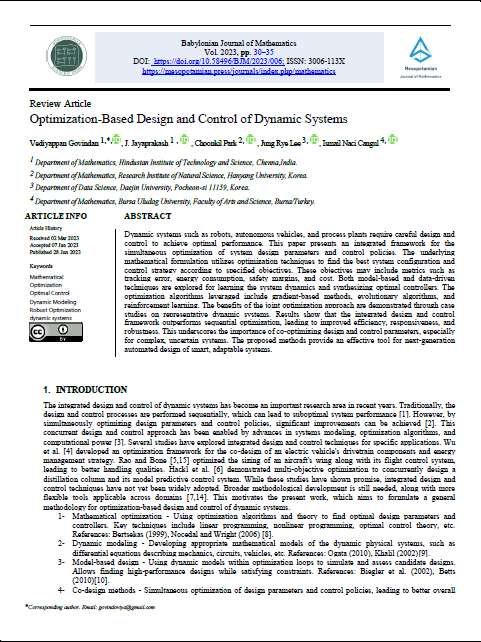Optimization-Based Design and Control of Dynamic Systems
Main Article Content
Abstract
Dynamic systems such as robots, autonomous vehicles, and process plants require careful design and control to achieve optimal performance. This paper presents an integrated framework for the simultaneous optimization of system design parameters and control policies. The underlying mathematical formulation utilizes optimization techniques to find the best system configuration and control strategy according to specified objectives. These objectives may include metrics such as tracking error, energy consumption, safety margins, and cost. Both model-based and data-driven techniques are explored for learning the system dynamics and synthesizing optimal controllers. The optimization algorithms leveraged include gradient-based methods, evolutionary algorithms, and reinforcement learning. The benefits of the joint optimization approach are demonstrated through case studies on representative dynamic systems. Results show that the integrated design and control framework outperforms sequential optimization, leading to improved efficiency, responsiveness, and robustness. This underscores the importance of co-optimizing design and control parameters, especially for complex, uncertain systems. The proposed methods provide an effective tool for next-generation automated design of smart, adaptable systems.
